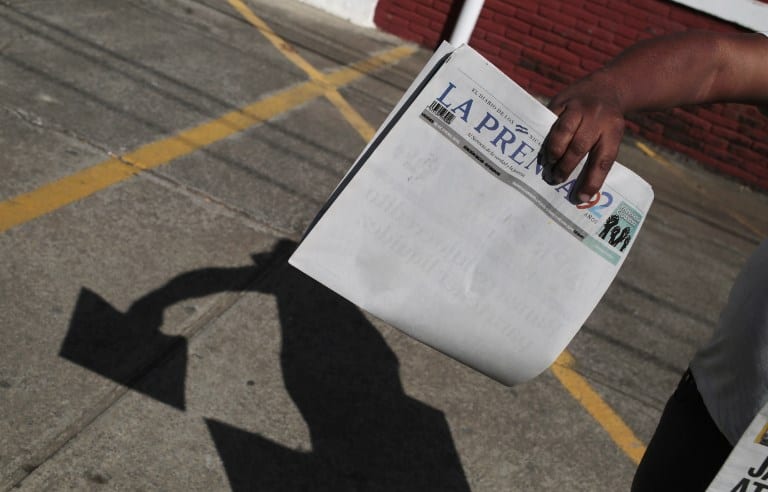The Nicaraguan congress approved on Tuesday a cybercrime law, baptized by the opposition as a “gag” law, which imposes jail time for people and entities that the government considers to spread “false news.”
The initiative was approved with 70 votes in favor, all from deputies of the ruling Sandinista Front (FSLN). The 16 who voted against the project denounced for apparent persecution of President Daniel Ortega’s adversaries.
“The liars are out of business: Those who are part of the industry of lies on social networks, those who create and spread false news creating alarm, fear and anxiety, affecting economic stability and public order,” deputy Emilio López affirmed in the debate.
The law indicates that the “spreading of false news” will be punished with two to four years in prison. If “misrepresented information” harms the honor of a person and their family, the penalty will be one to three years in prison.
Publications that “incite hatred and violence” will receive three to five years in prison.
“Never again to hate on social networks,” said López, who said that the government will no longer allow media to sow hatred or “chaos.”
He warned that the law could be applied, for example, in cases such as those of those who say that the 2021 elections will be held ahead of schedule. The statement was an apparent allusion to one of the demands made by the opposition during the 2018 protests.
López also cited the case of those who “say that thousands and thousands of Nicaraguans were infected and thousands had died from Covid-19,” referring to the figures of independent organizations that have questioned with data the lack of transparency about the pandemic in Nicaragua.
A law against dissent
Deputy Azucena Castillo, from the Constitutionalist Liberal Party (PLC), denounced that the law is “aimed at the opposition” and will further a “climate of repression” that has existed in the country since the 2018 anti-government protests.
“This initiative has a first and last name: it is to repress those who consider that the government is going the wrong way,” protested the head of the PLC bench, Maximino Rodríguez.
According to the opposition, the cybercrime law, as well as a law on “foreign agents” approved on October 15 by parliament, are part of a package of laws promoted by the Ortega government to control its political adversaries.
The law passed on Tuesday empowers the Ministry of the Interior, the police and the state-run Nicaraguan Telecommunications Company (TELCOR) to investigate and prosecute crimes committed by the media and computer applications that produce, reproduce and transmit graphics and texts.
The judges will apply penalties ranging from one to eight years in prison for a wide range of computer crimes that the State deems affect national security.
In the case of the crime of computer espionage, the maximum penalty is 10 years.
In addition to so-called fake news, the law also punishes social media harassment, data interference, computer fraud, leaking confidential public information, and revealing sensitive personal information, among others.
Judges may authorize the police to intervene and access the computer system of suspects and order internet service providers to record and provide data of users under investigation.
The law will apply to those who violate the rules inside and outside Nicaragua, which according to the opposition includes exiles who campaign against the government.






